Buddhist Prenatal Education: Guiding Mothers for Healthier and Smarter Offspring

Buddhist Prenatal Education is founded on three elements: Body, Speech, and Mind. Practicing prenatal education based on Buddhist principles not only ensures the best psychological and physical foundation for the unborn child but also contributes to a peaceful and healthy pregnancy for the mother.
What is Buddhist Prenatal Education?
Buddhist prenatal education is a process that creates positive impacts to aid in the development of the fetus’s senses and brain through interactive activities between the mother and the unborn child.
Buddhist prenatal education is a process that positively impacts both mother and child. (Image: Sourced from the Internet)
Currently, there are numerous prenatal education methods, and the Buddhist approach is recognized as an effective educational method. Not only does it help in the healthy and intelligent development of the fetus, but it also nurtures the character and soul of the unborn child while still in the womb.
Buddhist prenatal education is based on three aspects: Body – implying careful movement; Speech – indicating the avoidance of improper eating and speaking; and Mind – meaning the elimination of greed, hatred, and delusion. Applying Buddhist prenatal education not only provides the best psychological and physical foundation for the unborn child but also ensures a peaceful and healthy pregnancy for the mother.
Modern scientific research has revealed that besides its primary function of transmitting nutrients, the umbilical cord also plays a crucial role in nurturing the emotions of the expectant mother and establishing a direct connection with the fetus.
Buddhist prenatal education benefits both mother and child. (Image: Sourced from the Internet)
If a mother frequently experiences feelings of irritation, anger, or resentment, her body will produce adrenaline. When she is scared, her body releases cholamine, and stress can increase cortisol and dopamine levels. These substances cross the placenta and reach the fetus within seconds after the mother experiences these emotions.
Negative maternal emotions can lead to a reduction in oxygen and blood to the fetus, affecting its chemical and nutritional components, and potentially causing congenital disabilities.
Conversely, if the mother maintains a joyful, happy, and positive attitude during pregnancy, she will produce enophins and endorphins, making the baby more likely to be cheerful, content, and active after birth.
How Does Buddhist Prenatal Education Benefit Mother and Baby?
In reality, Buddhist prenatal education, like many other prenatal methods, emphasizes daily interactions between the expectant mother and the fetus. This education can start from the first trimester of pregnancy and doesn’t necessarily have to wait until the baby starts responding to external stimuli.
Here are the benefits that Buddhist prenatal education brings to both the mother and the fetus:
Eases the Mother’s Daily Life
The umbilical cord not only transmits nutrients from the mother to the fetus but also serves as a bond between them. Therefore, the mother’s emotions significantly impact the fetus’s development.
Buddhist prenatal education fosters early cognitive development in babies. (Image: Sourced from the Internet)
If a mother is often stressed, harbors hatred, or suffers, her body will produce substances like adrenaline, cholamine, and cortisol, which can affect both her brain and the baby’s physical development.
Therefore, Buddhist prenatal education helps purify and stabilize the mother’s mind, reducing stress and anxiety and keeping her in a state of happiness.
Therefore, the Buddhist method of prenatal education helps purify and stabilize the mind of the expectant mother, reducing stress and anxiety, and keeping her feeling happy throughout pregnancy.
Cultivating Character in the Child from the Womb
Buddhist prenatal education aids in forming a good character in the fetus from a very early stage. Buddhist music and scriptures, which emphasize selflessness and compassion, help instill these virtues in the unborn child, guiding them towards goodness and away from harm.
Fostering Intelligence and Thought in the Baby from Inside the Womb
This form of prenatal education also assists the fetus in developing thinking and intelligence early on, thanks to the profound philosophies of Buddhism. The process teaches expectant mothers patience and understanding, helping them share and relieve stress, emotions, and negative thoughts. These positive mental states and thoughts then positively affect the fetus, encouraging its wholesome and comprehensive development in all aspects.
Three Recommended Buddhist Prenatal Education Methods for Expectant Mothers
Buddhist prenatal education offers numerous benefits for both mother and baby. To maximize the effectiveness of this method, expectant mothers should consider the following approaches:
Emotional Prenatal Education
In this approach, the mother should avoid negative reactions as much as possible while fostering a positive character – being empathetic, creating joy, and letting go of sorrows and grievances.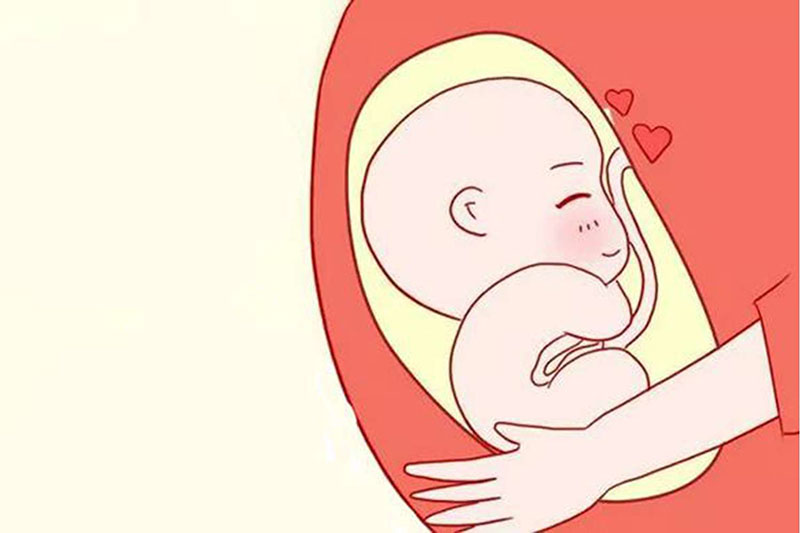
Emotional prenatal education avoids negative emotions. (Image: Sourced from the Internet)
When a child is conceived, it already has consciousness. Thus, the mother’s thoughts and actions greatly influence the fetus. If the mother harbors positive thoughts during this period, the fetus receives numerous blessings. During this time, the mother’s dutifulness and respect can also significantly impact the fetus.
The mother can play soothing, wordless music or meditation tracks. It’s recommended to choose music that lifts the spirits and alleviates sorrow and pain, thereby generating positive emotions beneficial for both mother and baby.
Language-Based Prenatal Education
This form of prenatal education is one of the three methods recommended in Buddhist teachings.
The translation and rewriting maintain the original format and content while ensuring clarity and ease of understanding for native English speakers.
Language-Based Prenatal Education in Buddhism
Language-based prenatal education is one of the three methods recommended in Buddhist teachings for expectant mothers.
Buddhist prenatal education through aesthetics has a significantly positive impact. (Image: Sourced from the Internet)
There are four ways of language communication that mothers can apply:
Speak the truth.
Use words that are constructive, promote harmony and healing.
Speak kindly and respectfully, avoiding vulgar language, insults, sarcasm, or comments that could cause sadness.
Speak in a way that brings genuine benefit.
During pregnancy, expectant mothers should stay away from gossip and avoid sharing such stories with others. Loving speech should come from the heart, steering clear of language that can cause tension to prevent the mother from feeling overwhelmed.
Prenatal Education Through Aesthetics
Aesthetics, based on people’s lifestyles and perceptions of beauty, should not be overlooked during pregnancy. Expectant mothers can decorate their environment with images of Buddha, Bodhisattvas, or adorable babies, creating a visually pleasing and positive atmosphere that can greatly benefit the child after birth.
How Does Buddhist Prenatal Education Vary with Each Pregnancy Trimester?
The mother’s mental and emotional state greatly influences the development of the fetus.
The mother’s psychology greatly affects the fetus’s development. (Image: Sourced from the Internet)
As the mother plays a vital role and is akin to a lay practitioner understanding the beneficial teachings of Buddhism, it is advisable to apply these teachings in educating the fetus for the benefit of both mother and child. Depending on each stage of pregnancy, the mother can choose the appropriate educational approach:
Buddhist Prenatal Education in the First Trimester
During the first three months, the fetus is still very small and continues to develop body parts in subsequent months. The mother starts to feel the development of this tiny life within her. The psychological pressure from morning sickness, irritability, and fatigue can lead to negative emotions…
To regain balance, mothers can practice meditation and mindful walking. Specifically:
While Eating: Eat slowly and chew thoroughly to absorb nutrients well.
Mindful Walking: Walk gently to facilitate movement for both mother and fetus, promoting optimal development. During walking, the mother can silently or audibly chant sacred names like “”Namo Guan Shi Yin Bodhisattva”” or “”Namo Amitabha Buddha.””
The translation and rewriting maintain the original format and content while ensuring clarity and ease of understanding for native English speakers.
Meditative Music Listening
Additionally, a popular method among expectant mothers is listening to meditative music for 15-20 minutes daily. The soothing and gentle melodies provide relaxation for the mother, positively influencing the fetus.
Buddhist Prenatal Education During the Middle Trimester
In the middle trimester of pregnancy, the mother’s body adapts to pregnancy, morning sickness lessens, and her mental state stabilizes. This allows her to feel the baby’s movements more clearly, and the fetus can now react to external stimuli.
Therefore, during this phase, continue exposing the fetus to Buddhist music, meditation, and Buddhist teachings. Maintain a stable, happy mindset to pass on positive energy to the fetus.
Buddhist prenatal education in the middle trimester involves exposing the fetus to Buddhist music. (Image: Sourced from the Internet)
Buddhist Prenatal Education During the Last Trimester
As the fetus matures in the last three months, its hearing develops significantly. Playing meditative and Buddhist music can greatly benefit both mother and baby. The mother can also introduce the fetus to Buddhist literature, stories about karma, lullabies, and chants.
Implementing these practices is like sowing seeds of goodness and righteousness to nurture the child’s soul and character. Additionally, gentle exercise and meditation should be continued daily to enhance the child’s future physical capabilities.
Important Considerations in Buddhist Prenatal Education
Buddhist prenatal education, like any other method, offers definite benefits to both mother and child. The mother’s emotions significantly affect the fetus’s development. Therefore, during Buddhist prenatal education, the following should be kept in mind:
Learn to Forgive and Share: When feeling distressed, seek support from a trustworthy spouse or friends to relieve stress and find solutions.
Positive Thinking: Maintain a cheerful mindset, regularly talk and share thoughts with the baby. Keep the soul at ease with positive thoughts.
Chanting: Sincerely chant and pray for the health and well-being of the fetus, yourself, and your family.
Avoid Excessive Worry: Instead of overthinking, learn to remain calm and handle situations smoothly. Excessive worry can lead to negative mental states, affecting both the mother and the fetus.
Attention to Lifestyle and Exercise: Engage in gentle exercise and ensure adequate nutrition for a healthy body, preparing for childbirth.
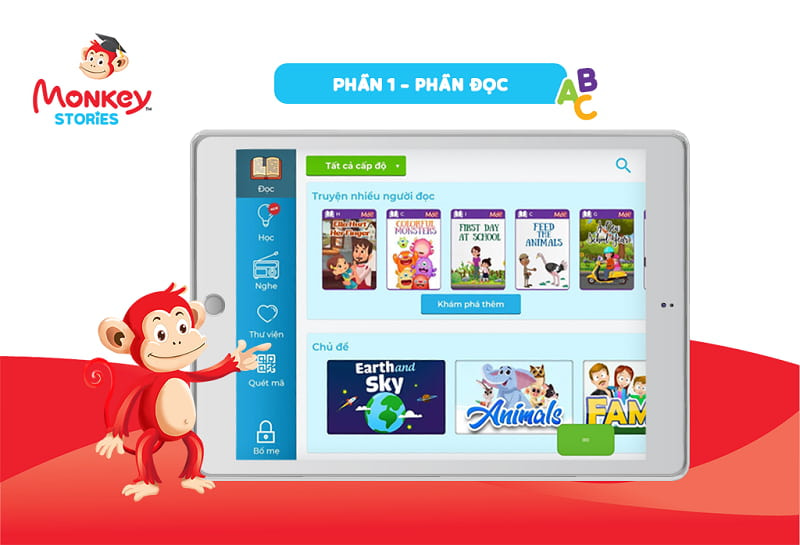
In addition to Buddhist prenatal education, mothers can expose the fetus to children’s music and English songs. (Image: Monkey)
Besides Buddhist prenatal education, expectant mothers can incorporate various other methods such as yoga, playing children’s music, ballads, or listening to Vietnamese stories or English audiobooks through Monkey Stories. This helps the fetus become familiar with and understand the language, aiding in the development of sharp cognitive skills later on.
(Source: monkey.edu.vn)
Sản phẩm bạn có thể quan tâm
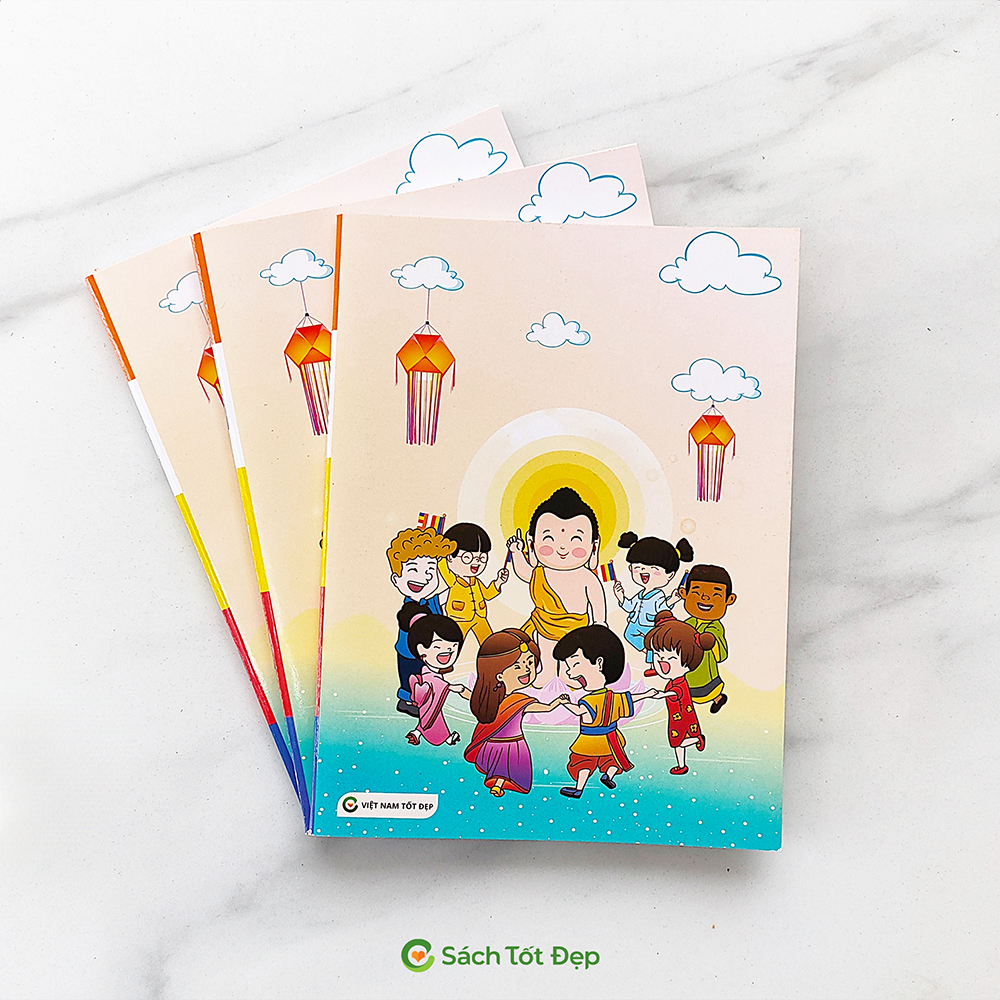
Tot Dep Notebook 96-pages
Warning: Undefined array key 0 in /home/totdepc/public_html/sach/wp-content/themes/totdepbookstore/single.php on line 357
Warning: Attempt to read property "name" on null in /home/totdepc/public_html/sach/wp-content/themes/totdepbookstore/single.php on line 357
8.000đ
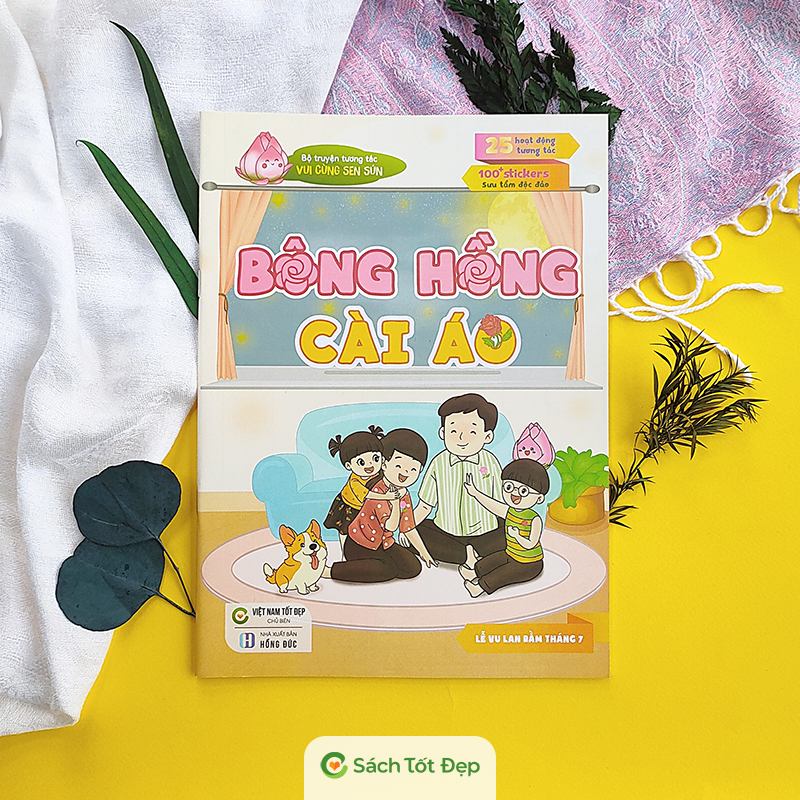
Let’s play with Sen Sun: Ullambana Festival
Coloring book
28.000đ
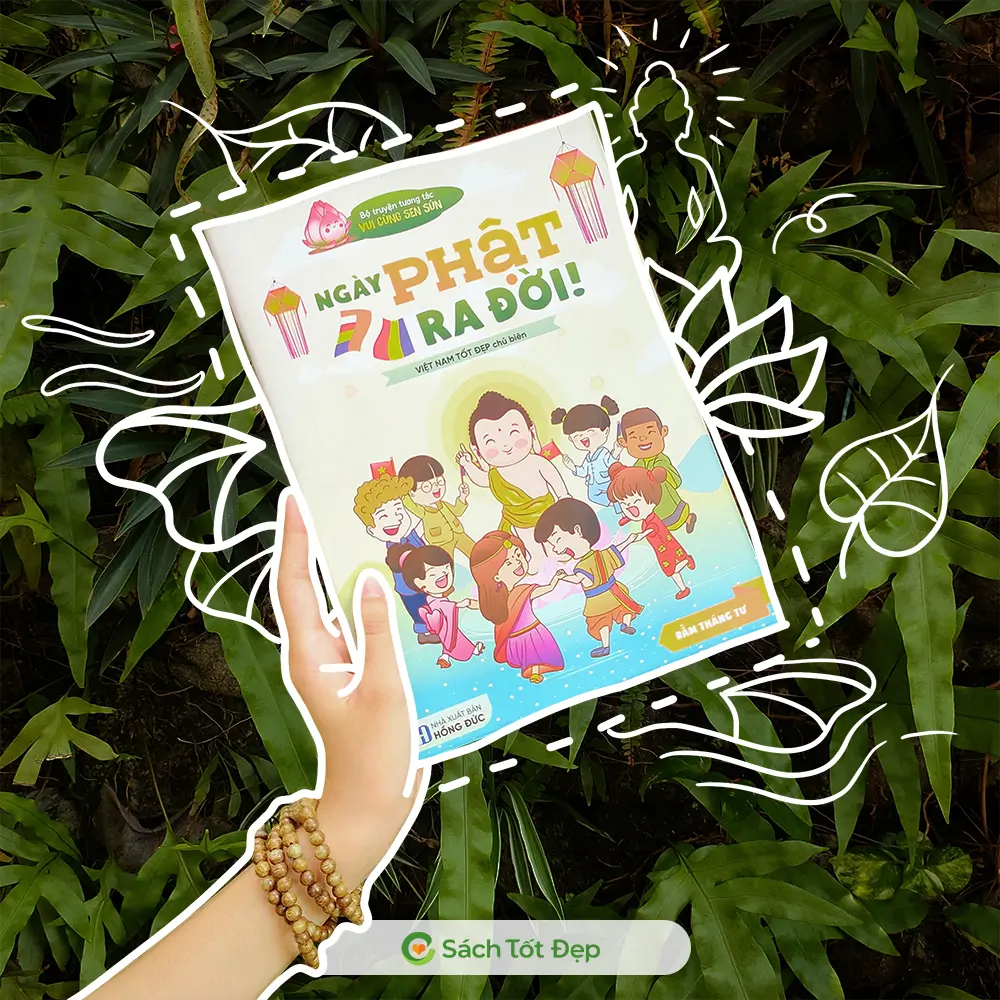
Let’s play with Sen Sun: Buddha’s birthday
Coloring book
28.000đ

Wisdom Combo: 5 books + 3 special gifts
Coloring book
280.000đ





